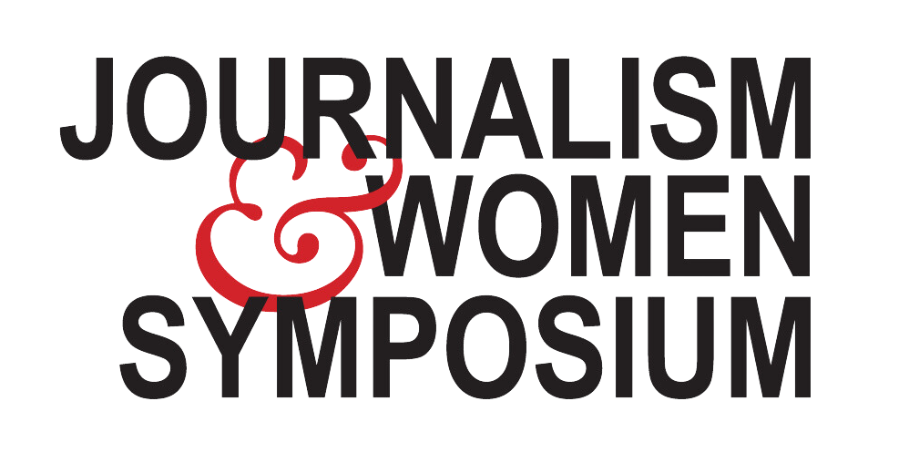JAWS CAMP 2025 Recap - Sessions You May Have Missed: Sally Buzbee
2023-2025 JAWS President Angela Greiling Keane (left) in conversation with Sally Buzbee, U.S.-Canada Reuters Editor (right) at JAWS CAMP 2025 in Washington, D.C. Photo by Nina Zacuto
(WASHINGTON, DC) - JAWS’ 40th Anniversary Conference and Mentoring Program (CAMP) was held September 5-7, 2025 at The Royal Sonesta Hotel in Washington, DC’s Dupont Circle neighborhood.
By Malia Mendez, Staff Writer | Los Angeles Times (JAWS CAMP 2025 Volunteer)
Sally Buzbee, U.S.-Canada Reuters Editor in conversation with 2023-2025 JAWS President Angela Greiling Keane
Saturday, Sept. 6, 2025
Sally Buzbee, a former executive editor at the Washington Post and current Reuters News Editor for the United States and Canada, in her Saturday session spoke about her journey to become a high-ranking woman in the news industry, the challenges currently being faced by reporters under the Trump administration and how legacy outlets can best adapt to the current news landscape.
As a woman reporter-turned-editor, Buzbee admitted to feeling at different times throughout her life as though she was neglecting her family or her job. She noted that while this uncertainty sticks with her even in her prominent position today, she takes comfort in the fact that she is not alone in feeling that way, noting that “every person in a position like mine has the same self-doubt.”
Buzbee also discussed how benefiting from the work of the women reporters who came before her has spurred her on to push for even greater equality and inclusion for women in the newsroom. She emphasized that the second and third woman editor is just as important as the first and that while we should celebrate our progress, that doesn’t mean we should grow complacent.
For those seeking to ascend to a higher position within their newsroom, Buzbee recommended being vocal about one’s aspirations and seeking opportunities to practice the skills required in an editor or manager position prior to actually getting promoted.
In terms of navigating the current news moment, Buzbee said that what’s worked for Reuters lately is being as dry and clear as possible in its coverage, ensuring that they are able to reach the greatest potential readership. As people grow to distrust the media, Buzbee said the best thing we can do is be transparent about our sourcing — telling readers exactly how we reported and delivered any given story. Right now, Buzbee’s focus is on pushing accountability journalism more than ever and in spite of Trump’s viewpoint discrimination and other barriers to getting independent information.
Buzbee gave the example that when Reuters was publishing articles about the Ukraine war, people assumed its reporters were simply blogging about the conflict from thousands of miles away. Reuters drew a much younger and much broader audience after clarifying that its reporters were on the ground in Ukraine, reporting what they saw.
As for how to best continue our role as reporters in a time when people are increasingly turning to news influencers for information, Buzbee said it’s best to take note of how people want their news and cater to that.
“We just have to get over ourselves and understand the way the world is going,” she said.
Buzbee advised that news outlets remove inaccessible language and jargon from beat reporting, i.e. business and legal reporting, and truly work to understand their audiences. She also notably asserted that the onus is on trained reporters to alert news influencers to potential conflicts of interest in their “reporting” and advise them about ethical practices. Perhaps, she said, there is even potential for collaboration between legacy outlets and these independent journalists and fringe news influencers.
About the Journalism & Women Symposium (JAWS)
Arising from a first meeting of women journalists in 1985, JAWS advances the professional empowerment and personal growth of women* in journalism and advocates for more inclusive coverage of the diverse experiences and cultures that comprise our society. We believe that by advancing women in journalism, we transform the world.
JAWS brings together working journalists, journalism educators and researchers from across the country to share resources, support, training and information about issues that affect women in our field. We meet in person and online in an atmosphere of mutual support and enthusiastic interest in one another’s differing experiences and journalistic dreams.
*“Women” here includes anyone who self-identifies as a woman, or as a non-binary, gender-nonconforming or agender person. Learn more at jaws.org.

